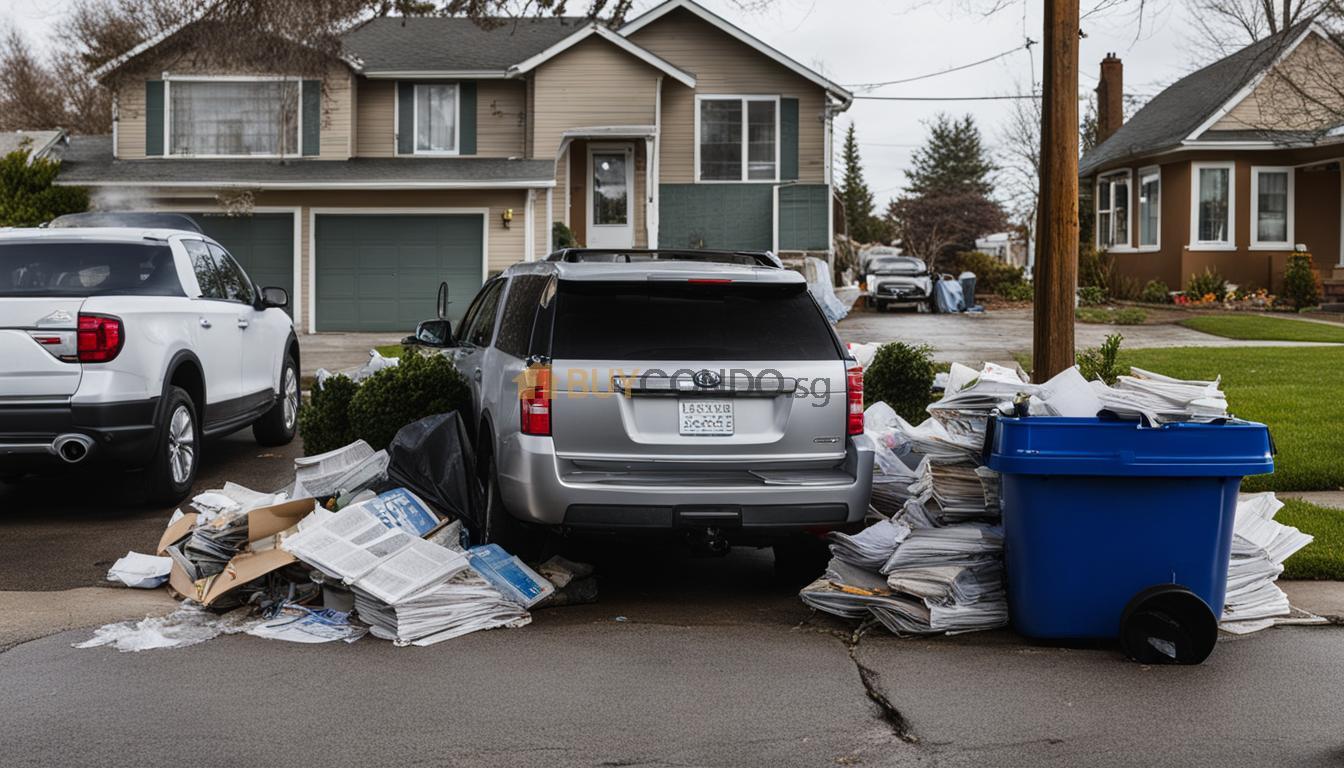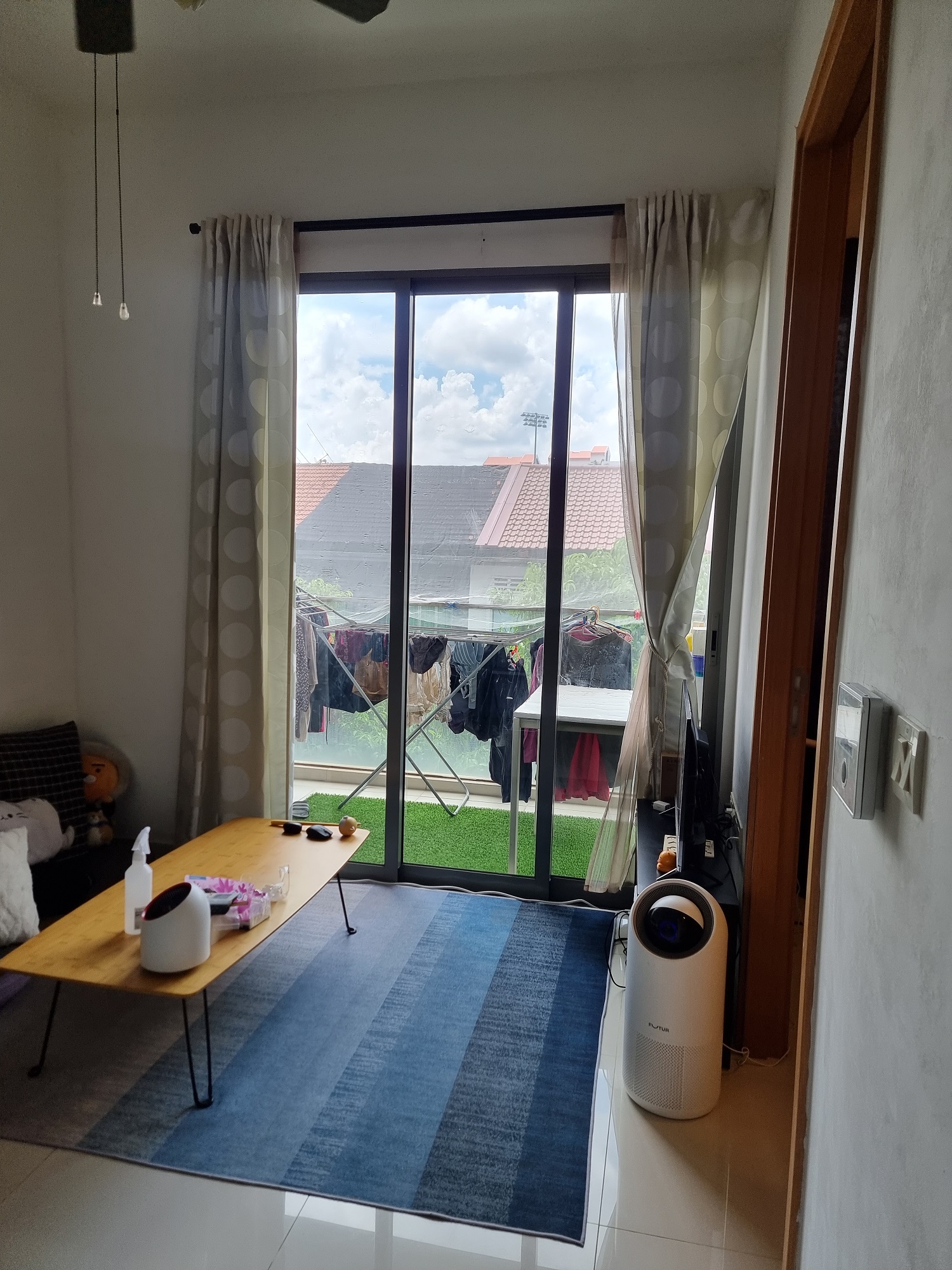10 Self-Ask Questions is it is worth it to manage your own rental property

10 Self-Ask Questions is it is worth it to manage your own rental property
1: Develop a comprehensive financial analysis comparing the costs and benefits of self-managing your investment property versus hiring a property management company.
2: Create a checklist of tasks involved in managing an investment property to help determine if you have the time, skills, and resources to effectively self-manage.
3: Research and compare the fees charged by property management companies to the potential savings of self-managing, considering factors like rental income, maintenance costs, and vacancy rates.
4: Interview and gather testimonials from other property owners who have experience with self-managing their investment properties to gain insights into the pros and cons.
5: Seek advice from financial advisors or real estate professionals to evaluate the potential risks and rewards of self-management based on your specific property and financial goals.
6: Consider the level of control and autonomy you desire as a property owner and weigh it against the convenience and time savings offered by a property management company.
7: Evaluate your own skills and knowledge in areas such as tenant screening, lease agreements, rental market analysis, property maintenance, and legal compliance to determine if you can handle these responsibilities effectively.
8: Assess your availability and willingness to handle tenant inquiries, emergency repairs, and other property-related issues outside of regular business hours.
9: Research and familiarize yourself with local landlord-tenant laws and regulations to ensure you can comply with all legal requirements when self-managing your investment property.
10: Consider the potential benefits of building direct relationships with tenants, such as improved communication, better understanding of tenant needs, and the ability to address issues promptly and personally.

Is it worth to Self Manage my investment property? lets dive in. Investing in residential rental property can be a lucrative endeavor, offering the potential for a steady income stream and long-term appreciation. However, it also comes with its fair share of challenges and responsibilities. From finding the right property to dealing with maintenance issues and managing tenants, being a landlord requires a significant investment of time and effort.
But is it all worth it? Is the return on investment (ROI) worth the hours spent dealing with property management tasks? In this article, we will explore the various aspects of managing a leased out property and help you decide if it’s a venture worth pursuing.
Key Takeaways:
- Managing a leased out property requires a significant investment of time and effort.
- Challenges include finding a suitable property, preparing the rental unit, finding and screening tenants, dealing with hassles, and managing maintenance and expenses.
- Hiring a property manager or can alleviate most of the workload.
- Consider the potential returns and the resources available before deciding to manage the property yourself or outsource it to a professional.
- Evaluating your unique circumstances and goals will help determine the best approach to managing your leased out property.
Challenges of Owning a Rental Property
Investing in a residential rental property can be a lucrative endeavor, but it also comes with its fair share of challenges. As a landlord, you will likely encounter various obstacles that require your attention and resources. Understanding and navigating these challenges is essential for successfully managing your rental property.
Maintenance and Repairs
One of the primary challenges of owning a rental property is dealing with maintenance and repairs. As a landlord, you are responsible for ensuring that the property is in good condition and addressing any issues that arise. This could include plumbing problems, electrical issues, or general wear and tear. These maintenance tasks can be time-consuming and require financial investment, which can impact your overall profitability.
Managing Tenants
Another significant challenge is finding and managing tenants. It is crucial to find reliable and responsible tenants who will pay rent on time and take care of the property. This process involves advertising the property, screening potential tenants, and dealing with tenant-related issues such as late payments or property damage. Managing tenants can be demanding and requires excellent communication and problem-solving skills.
Financial Considerations
Running a rental property also involves financial considerations. Besides the initial investment in purchasing the property, you need to budget for ongoing expenses such as property taxes, insurance, and regular maintenance. Additionally, fluctuations in interest rates can impact your mortgage payments and overall profitability. It is crucial to have a solid financial plan and be prepared for unexpected expenses.
While these challenges may seem overwhelming, they can be mitigated with careful planning and understanding of the rental property market. Hiring a property manager and they usually also have their own tracking system or property management systems to streamline some of the tasks and vast network of contractors to alleviate the burden. Ultimately, being aware of the challenges and having strategies in place to overcome them will enable you to maximize the potential returns of your residential rental property.
The Importance of Finding a Suitable Property
When it comes to investing in a residential rental property, finding a suitable property is of utmost importance. The right property can be the foundation for a successful rental business, while the wrong property can lead to headaches and financial loss. So, what exactly makes a property suitable for rental?
Location
The location of a rental property plays a significant role in its appeal to potential tenants. A property that is situated in a desirable neighborhood, close to amenities such as schools, shopping centers, and public transportation, is more likely to attract quality tenants. It’s essential to research the location thoroughly and consider factors such as safety, accessibility, and the neighborhood’s overall reputation.
Rental Potential
Assessing the rental potential of a property is crucial for determining its suitability as an investment. Look at the current rental market trends in the area and evaluate the demand and supply dynamics. It’s also important to consider the potential for rental income growth in the future. Analyze the rental rates of similar properties in the vicinity to get an idea of the earning potential.
Renovation and Repair Needs
Before purchasing a property for rental purposes, it’s essential to assess any renovation or repair needs. Consider factors such as the age and condition of the property, the functionality of its amenities, and the overall appeal to potential tenants. Investing in necessary repairs and renovations can increase the property’s value and attract higher-quality tenants.
| Factors to consider when finding a suitable property: |
|---|
| Location |
| Rental Potential |
| Renovation and Repair Needs |
“Finding a suitable residential rental property is crucial for successful property investment. It’s important to consider factors such as location, price, rental potential, and potential renovation or repair needs.”
By thoroughly evaluating these factors, landlords can increase their chances of finding a suitable property that will attract quality tenants and generate consistent rental income. Additionally, hiring a property manager who has expertise in property searches can help streamline the process and ensure that all essential aspects are considered.
Preparing the Rental Unit
Before renting out a property, it is essential to ensure that the rental unit is in good condition and meets the necessary standards. This involves a process of preparing the property to attract potential tenants and provide them with a comfortable living space.
One aspect of preparing the rental unit is conducting necessary renovations or repairs. This may include updating flooring, painting walls, repairing any damaged fixtures, and ensuring that all amenities are in good working order. These preparations not only enhance the appeal of the property but also contribute to its long-term maintenance and durability.
Furthermore, it is important to consider the overall cleanliness and presentation of the rental unit. A well-maintained property sends a positive message to potential tenants, indicating that the landlord values the upkeep of the property and expects the same from their tenants. Cleaning the premises thoroughly and staging the unit with appropriate furnishings and decor can greatly enhance its appeal.
By investing time and effort in preparing the rental unit, landlords can attract high-quality tenants who are more likely to treat the property with care and respect. This can lead to longer tenancies, reduced turnover, and ultimately, greater returns on investment.
Table: Rental Unit Preparation Checklist
| Task | Description |
|---|---|
| Inspect and repair | Identify any maintenance issues and address them promptly. This includes fixing leaks, repairing electrical or plumbing problems, and ensuring that appliances are in working condition. |
| Paint and refresh | Apply a fresh coat of paint to walls and ceilings, as needed. Consider using neutral colors that appeal to a wider range of potential tenants. |
| Clean and sanitize | Thoroughly clean the entire rental unit, including floors, windows, and any installed fixtures. Pay attention to areas such as kitchens and bathrooms to ensure they are hygienic and free from any unpleasant odors. |
| Stage and furnish | Present the rental unit in the best possible light by staging it with appropriate furnishings and decor. This helps potential tenants visualize themselves living in the space and increases its overall appeal. |
| Document condition | Take detailed photographs and notes to document the condition of the rental unit before a new tenant moves in. This will help resolve any disputes or claims for damages that may arise in the future. |
Finding and Screening Tenants
One of the key aspects of managing a residential rental property is finding suitable tenants. The right tenants can help ensure a smooth and profitable rental experience, while problematic tenants can create headaches and financial losses. It’s essential for landlords to take the time to find and screen potential tenants thoroughly.
When it comes to finding tenants, landlords have several options. They can advertise their property on rental listing sites, such as rentalproperty.com or apartmentfinder.com, which attract a wide pool of potential renters. Additionally, real estate companies often have dedicated rental departments that can help landlords find suitable tenants.
Once potential tenants express interest in the property, it is crucial to conduct thorough screenings. This includes checking their credit history, employment status, and references from previous landlords. Landlords may also choose to conduct background checks to ensure that potential tenants have a clean record. This screening process helps to identify responsible tenants who are more likely to pay rent on time and take care of the property throughout their tenancy.
“Finding the right tenants is crucial for the success of a rental property. Thorough screening helps to minimize the risk of non-payment, property damage, and other potential issues.”

Dealing with Rental Property Hassles
Owning a residential rental property comes with its fair share of challenges and occasional headaches. From unexpected maintenance issues to tenant disputes, landlords must be prepared to handle various hassles that can arise. In this section, we’ll explore some common rental property hassles and provide insights on how to effectively address them.
1. Maintenance and Repairs
One of the primary responsibilities of a landlord is to ensure that the rental property is well-maintained and in good condition. However, it’s not uncommon for maintenance issues to occur, such as broken pipes, malfunctioning electrical systems, or leaky roofs. Promptly addressing these issues is crucial to keep tenants satisfied and maintain the value of the property.
Landlords can mitigate maintenance hassles by conducting regular property inspections, scheduling routine maintenance, and promptly responding to repair requests from tenants. It’s also wise to establish relationships with reliable contractors or a maintenance team who can efficiently handle any repairs or maintenance tasks that arise.
While most tenants are respectful and responsible, there may be instances where landlords must deal with difficult tenants. This can include late rent payments, noise complaints, unauthorized alterations to the property, or even eviction proceedings. Resolving tenant-related issues requires clear communication and a firm understanding of tenant rights and local rental laws.
Landlords can minimize tenant-related hassles by carefully screening potential tenants before signing a lease agreement. This includes conducting thorough background and credit checks, contacting references, and verifying employment and income. Additionally, maintaining open lines of communication with tenants and addressing their concerns promptly can help prevent issues from escalating.

3. Legal and Regulatory Compliance
Landlords must navigate various legal and regulatory requirements associated with renting out a property. This can include understanding and adhering to local housing laws, obtaining the necessary permits and licenses, and ensuring compliance with fair housing regulations.
To avoid legal hassles, landlords must stay informed about any updates or changes in rental laws that may affect their obligations. It’s also advisable to consult with legal professionals or join landlord associations that provide guidance and support in navigating legal and regulatory compliance.
By proactively addressing rental property hassles and implementing effective strategies, landlords can minimize the impact of these challenges and ensure a smooth and successful rental experience.
Maintenance and Expenses
Property maintenance is a crucial aspect of owning a residential rental property. Regular upkeep ensures that the property remains in good condition, attracts quality tenants, and protects the landlord’s investment. However, maintenance comes with associated expenses that landlords need to consider when budgeting for their rental property.
Common maintenance expenses include repairs, replacements of appliances, and major projects such as roof repairs. These costs can vary depending on the age and condition of the property. It’s essential for landlords to set aside a portion of their rental income for these expenses to avoid financial strain in the future.
One way to manage maintenance costs more effectively is by conducting regular inspections and addressing any issues promptly. This proactive approach can help prevent minor problems from escalating into more significant and costly repairs. Additionally, establishing a network of reliable and cost-effective contractors can help ensure that maintenance work is carried out efficiently and within budget.
Hiring a Property Manager: Streamlining Rental Property Management
Managing a rental property can be a time-consuming and complex task, requiring landlords to handle various responsibilities such as marketing, tenant selection, maintenance coordination, and rent collection. To alleviate the workload and ensure efficient property management, many landlords opt to hire a property manager. By entrusting these professionals with the day-to-day operations, landlords can focus on other aspects of property investment and enjoy a more passive income stream.
When considering hiring a property manager, there are several key factors to evaluate. Firstly, it’s important to assess the specific roles and responsibilities that the property manager will undertake. This could include tasks such as advertising vacancies, conducting tenant screenings, handling lease agreements, addressing maintenance issues, and collecting rent. A comprehensive agreement should be established to ensure clarity and accountability.
Another crucial consideration is the cost associated with hiring a property manager. Fees is around 4%-6%% of the total rental collected. It’s essential to evaluate the financial impact of these fees on the overall profitability of the rental property. While hiring a property manager comes at a cost, it can be a worthwhile investment for landlords who value their time and prefer a more hands-off approach to property management.
Benefits of Hiring a Property Manager
There are several benefits to hiring a property manager for rental property management. One key advantage is their expertise and experience in the industry. Property managers have extensive knowledge of local rental markets, can effectively market vacancies, and have established networks for tenant screening. They can also handle challenging situations such as eviction processes and legal disputes, ensuring landlords remain compliant with relevant laws and regulations.
Furthermore, property managers can provide peace of mind for landlords by handling the day-to-day operations and responding to tenant needs promptly. They have systems in place to streamline processes, such as online rent collection and maintenance request portals. This level of organization and efficiency can lead to improved tenant satisfaction and retention, reducing vacancies and maximizing rental income.
Overall, hiring a property manager can be a strategic decision for landlords looking to efficiently manage their rental properties. By outsourcing the responsibilities and leveraging the expertise of these professionals, landlords can enjoy the benefits of passive income while ensuring their properties are well-maintained and profitable.

Conclusion – 10 Self-Ask Questions : Is it is worth it to manage your own rental property?
Managing a leased out property requires careful consideration of various factors, including the time and effort involved, potential returns, and available resources. It is crucial for landlords to assess their unique circumstances and goals before deciding on the best approach.
Self-management offers transparency and control over the property but demands a significant investment of time and effort. Landlords must be prepared to handle challenges such as finding a suitable property, preparing the rental unit, finding and screening tenants, addressing maintenance issues, and resolving tenant-related hassles.
On the other hand, hiring a property manager can alleviate the workload but will impact profits. Property managers can handle tasks like marketing, tenant selection, maintenance, and rent collection, allowing landlords to focus on other aspects of property investment.
FAQ
Is the time and effort to manage my leased out property worth it?
The decision to manage a leased out property should be based on careful consideration of the time and effort involved, the potential returns, and the availability of resources such as property management system or hiring a property manager. Each landlord should evaluate their unique circumstances and goals to determine the best approach.
What are the challenges of owning a rental property?
Challenges faced by landlords include finding a suitable property, preparing the unit for rental, finding good tenants, addressing maintenance issues, resolving tenant-related hassles, and navigating changes in interest rates. These challenges can be time-consuming, expensive, and require ongoing attention.
How important is finding a suitable property for rental investment?
Finding a suitable residential rental property is crucial for successful property investment. It’s important to consider factors such as location, price, rental potential, and potential renovation or repair needs. Hiring a property manager can assist in the property search process.
What needs to be done to prepare a rental unit?
Before renting out a property, it may require renovations or repairs to ensure it meets the necessary standards. This could include updating flooring, paint, window screens, and conducting maintenance on amenities. These preparations can be time-consuming and require financial investment.
How can I find and screen tenants for my rental property?
Landlords can utilize rental listing sites, real estate companies, and personal networks to advertise their property.
What difficulties might arise when managing a rental property?
Even with good tenants and well-maintained properties, landlords may face various hassles such as broken pipes, maintenance requests, and disputes over damages. Dealing with challenging tenants can add to the stress. Landlords may need to address these issues promptly to minimize the negative impact on their property and tenants.
What expenses should I expect when maintaining a rental property?
Maintaining a rental property can involve significant expenses, including repairs, replacement of appliances, and major maintenance projects like roof repairs. Landlords should budget for these costs and consider how they may impact their profits. Expenses such as landlord insurance and additional stamp duty charges should also be factored in.
Should I consider hiring a property manager?
Hiring a property manager can alleviate the time and effort required to manage a rental property, but it will come at a cost. Property managers can handle tasks such as marketing, tenant selection, maintenance, and rent collection. It’s important to carefully consider the roles and responsibilities of the property manager and assess their fees.
What should be considered when managing a leased out property?
The decision to manage a leased out property should be based on careful consideration of the time and effort involved, the potential returns, and the availability of resources such as property management software or hiring a property manager. Self-management can provide transparency and control but requires significant time investment, while hiring a property manager can alleviate the workload but impact profits. Each landlord should evaluate their unique circumstances and goals to determine the best approach.













